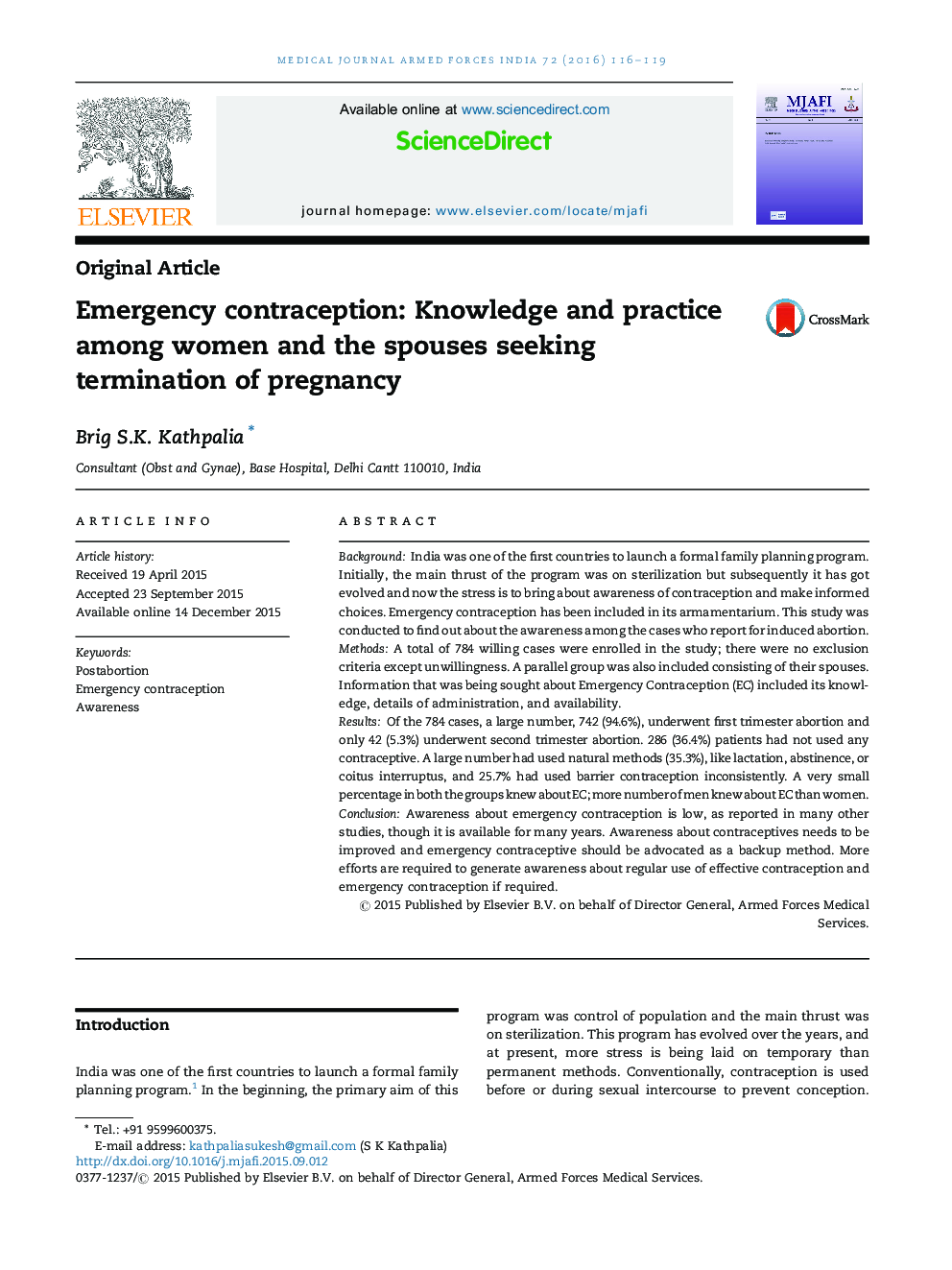| Article ID | Journal | Published Year | Pages | File Type |
|---|---|---|---|---|
| 3160907 | Medical Journal Armed Forces India | 2016 | 4 Pages |
BackgroundIndia was one of the first countries to launch a formal family planning program. Initially, the main thrust of the program was on sterilization but subsequently it has got evolved and now the stress is to bring about awareness of contraception and make informed choices. Emergency contraception has been included in its armamentarium. This study was conducted to find out about the awareness among the cases who report for induced abortion.MethodsA total of 784 willing cases were enrolled in the study; there were no exclusion criteria except unwillingness. A parallel group was also included consisting of their spouses. Information that was being sought about Emergency Contraception (EC) included its knowledge, details of administration, and availability.ResultsOf the 784 cases, a large number, 742 (94.6%), underwent first trimester abortion and only 42 (5.3%) underwent second trimester abortion. 286 (36.4%) patients had not used any contraceptive. A large number had used natural methods (35.3%), like lactation, abstinence, or coitus interruptus, and 25.7% had used barrier contraception inconsistently. A very small percentage in both the groups knew about EC; more number of men knew about EC than women.ConclusionAwareness about emergency contraception is low, as reported in many other studies, though it is available for many years. Awareness about contraceptives needs to be improved and emergency contraceptive should be advocated as a backup method. More efforts are required to generate awareness about regular use of effective contraception and emergency contraception if required.
